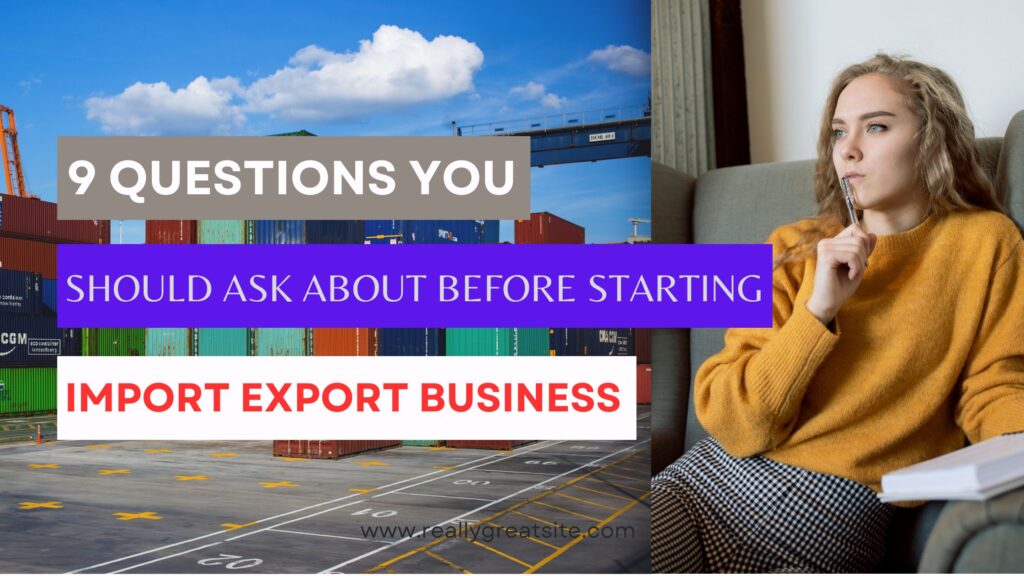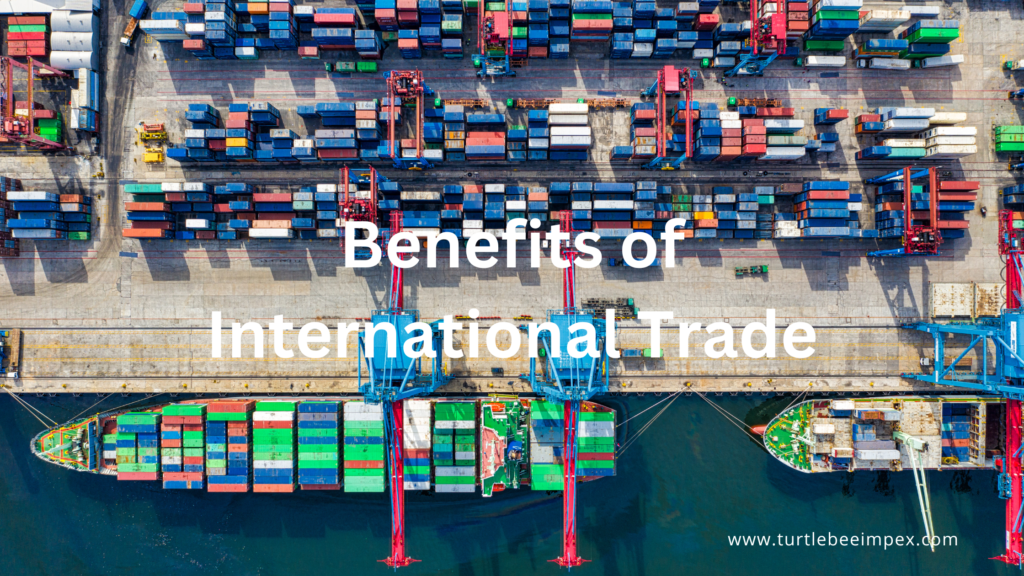
Starting an import export business can be an exciting and potentially lucrative Business. However, before diving in, it’s crucial to ask yourself several important questions to ensure that you are fully prepared for the challenges and opportunities that lie ahead. Here are nine key questions you should ask before embarking on your import/export journey.
Is There a Market Demand?
One of the fundamental questions to ask is whether there is a market demand for the products or services you plan to import or export. Conduct thorough market research to understand if there is a need for your offerings, identify potential competitors, and gauge the market’s size and growth potential. This information will help you determine if there is a viable market for your business.
What Are the Legal and Regulatory Requirements?
Import/export activities are subject to various legal and regulatory requirements. Research the specific regulations and laws that govern international trade in your target countries. Understand the customs procedures, documentation, tariffs, taxes, licensing, and any other legal obligations that you need to comply with. Failing to understand and adhere to these requirements can lead to delays, penalties, or even the closure of your business.
How Will You Finance Your Operations?
Consider how you will finance your import export business. Determine the capital needed to cover expenses such as product sourcing, transportation, marketing, and administrative costs. Explore funding options, such as personal savings, loans, grants, or partnerships. Having a clear financial plan in place will help you manage cash flow effectively and sustain your business in the long term.
Do You Have a Reliable Network?
Building a network of trusted contacts is essential in the import/export industry. Identify reliable suppliers, freight forwarders, customs brokers, distributors, and potential customers. Cultivate relationships with these key stakeholders who can provide support, advice, and business opportunities. Having a robust network will help you navigate challenges, negotiate favorable deals, and stay informed about market trends.
Have You Evaluated the Risks Involved?
International trade involves inherent risks, such as economic fluctuations, political instability, currency exchange rate fluctuations, and logistical challenges. Assess these risks and develop a risk management strategy to mitigate potential threats to your business. Consider purchasing appropriate insurance coverage to protect your shipments, investments, and intellectual property.
Have You Considered Cultural and Language Differences?
Doing business across borders means encountering different cultures, languages, and business practices. Familiarize yourself with the cultural nuances and etiquette of your target markets. Be prepared to adapt your communication style, marketing strategies, and product offerings to cater to the preferences and needs of your international customers. Building cultural competency will help you establish strong relationships and avoid potential misunderstandings.
How Will You Handle Logistics and Supply Chain?
Understanding logistics and supply chain management is crucial in the import/export business. Determine how you will source products, handle shipping, manage inventory, and ensure timely delivery to customers. Research different transportation options, such as air, sea, or land freight, and choose reliable logistics partners who can handle customs clearance and documentation efficiently.
What Will Be Your Marketing and Sales Strategy?
Develop a robust marketing and sales strategy tailored to your target markets. Identify the most effective channels to reach potential customers, whether through online platforms, trade shows, or local distributors. Determine how you will differentiate your products or services from competitors and articulate the unique value proposition to attract customers. Invest in marketing activities that align with the preferences and behaviors of your target audience.
Are You Prepared for Long-Term Commitment?
Building a successful import/export business requires long-term commitment and dedication. Ask yourself if you are prepared to invest the time, effort, and resources necessary for sustainable growth. Be realistic about the time it takes to establish relationships, navigate regulations, and overcome challenges. Patience, persistence, and a long-term mindset are essential qualities
FAQ: Import Export Business
Q1. Is an import export business profitable?
Yes, an import export business has the potential to be profitable. However, the profitability of such a business can vary based on several factors. It’s important to consider these factors when assessing the potential profitability of an import/export business
Q2. How do I start an import and export business in 2023?
You can start an import and export business in 2023. There are some steps you have to follow. You need to have a registered business, a product, and a market to sell.
Q3. How much money does an import export business make?
Money making varies from business to business on the basis of the product business chosen, the selected country, or the market. There are several other factors that affect the import-export business.

